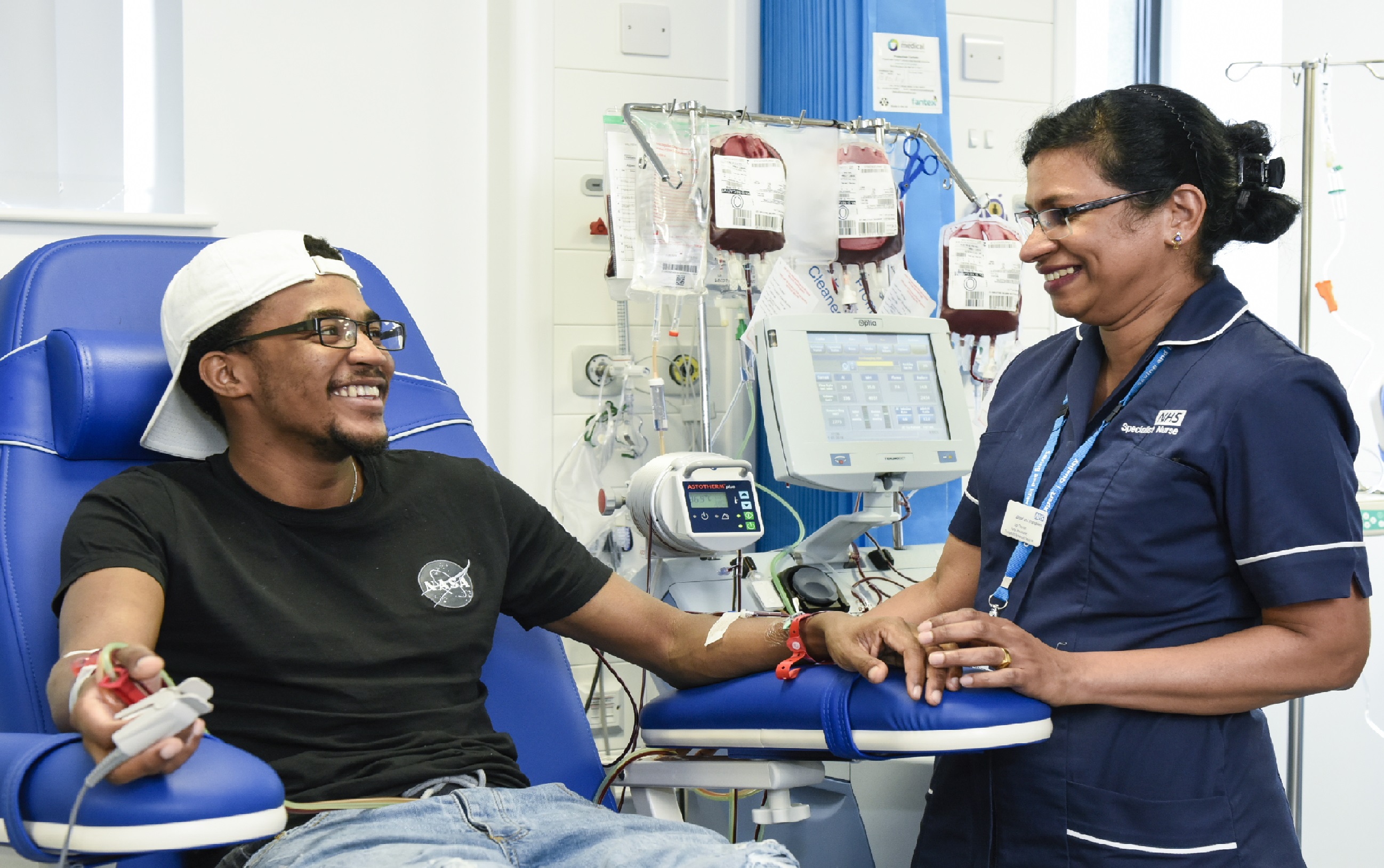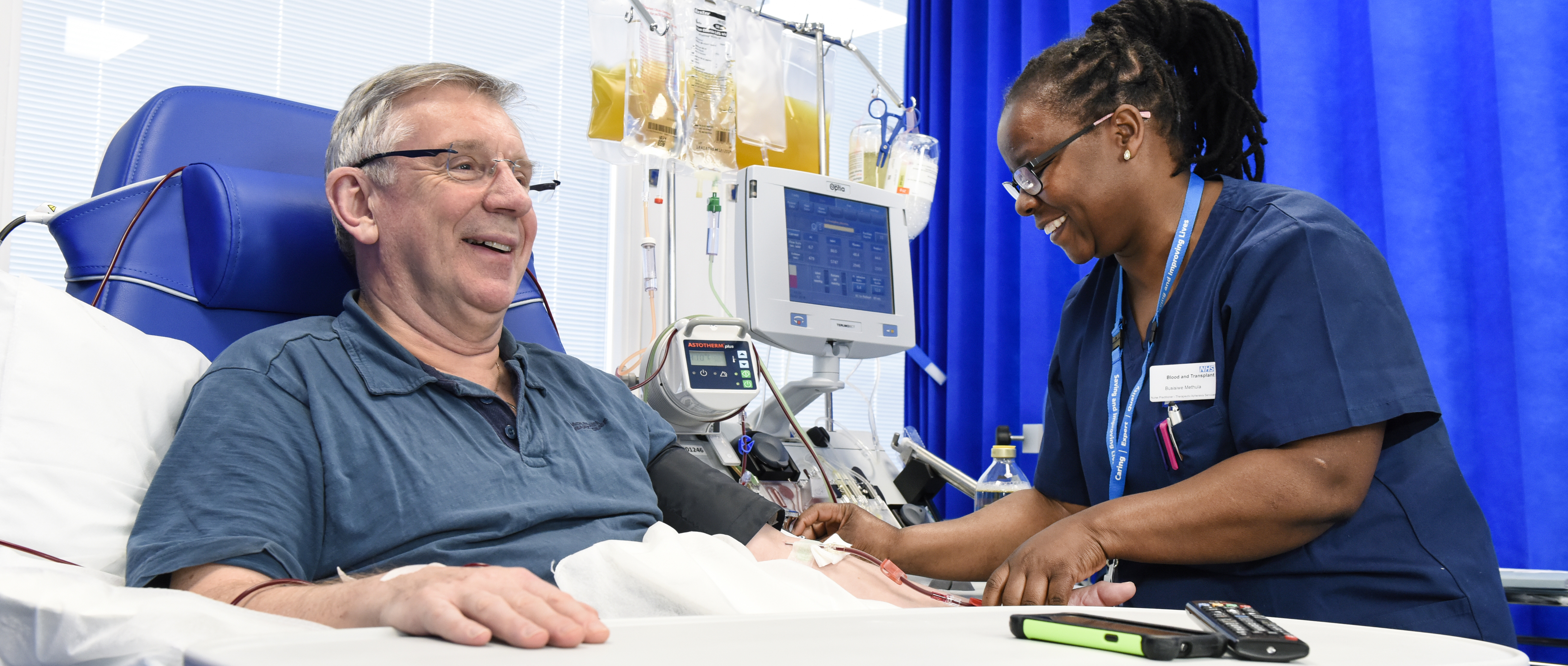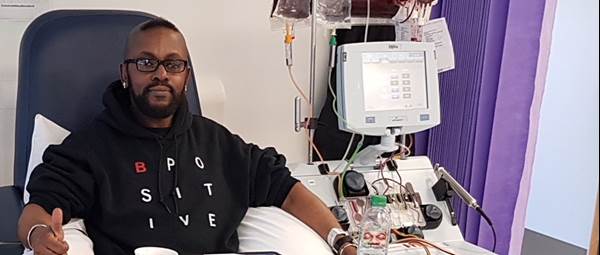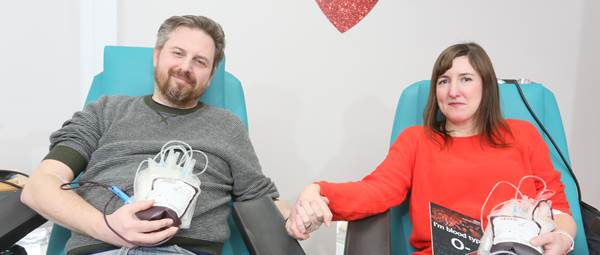Life-saving services for patients
NHS Blood and Transplant provides specialist treatments which remove harmful, disease-forming proteins, chemicals, or cells from patients’ blood.
NHS Blood and Transplant provides life-saving and life-enhancing Therapeutic Apheresis Services (TAS) directly to NHS patients. These specialist treatments remove harmful, disease-forming proteins, chemicals, or cells from patients’ blood.
In the process, blood is temporarily removed from the body via a vein and put through an apheresis machine, which separates the blood into its components.
We treat approximately 1,600 adults and children every year at eight dedicated therapeutic units across the country. If required, patients can be treated at a hospital. The patients’ conditions include blood cancer, sickle cell, multiple sclerosis, high cholesterol and immune disorders.
 Sickle cell
Sickle cell
People with sickle cell disorder produce unusually shaped red blood cells that can cause problems because they don’t live as long as healthy blood cells and they can become stuck in blood vessels. Sickle cell is a serious and lifelong condition, although long-term treatment can help patients to manage many of the problems associated with it.
(Picture: Red cell exchange patient)
NHS Blood and Transplant’s clinical teams have delivered around 5,000 automated red cell exchange treatments to patients living with sickle cell since 2016. On average, eight units of blood for adults and five units of blood for children are used. During the treatment, the harmful red blood cells are removed and replaced with red cells from donors. Blood will usually be removed through one vein and returned through another.
Automated red cell exchange is recommended for patients as it prevents serious complications such as stroke and chest pain. These treatments are also quicker than alternative options such as manual exchange or top up transfusion.
Therapeutic Apheresis Services’ doctors and nurses provide a 24/7, 365 days a year emergency on-call service, to support paediatric and adult patients across the country. In Manchester, for example, NHS Blood and Transplant in collaboration with Royal Manchester Children’s Hospital, have provided over 200 red cell exchange treatments to children with sickle cell disorder.
Bristol is one of the busiest of all the Therapeutic Apheresis Service units. Hannah Liggett is Lead nurse there.
She says, “I started working here in October 2020 and was lucky enough to join a fantastic team of nurses and unit assistants. Our unit is open 8am-6pm Monday to Friday and 8am-4pm on a Saturday. I am responsible for overseeing the treatments provided, patient management, staff well-being and other managerial tasks.
“We are currently the only unit that provides all eight apheresis procedures: plasma exchange, red cell exchange, extracorporeal photopheresis, stem cell collection, low density lipid removal, platelet depletion, white cell depletion and lymphocyte collection. These can be routine and/or emergency procedures.

“We see, on average, between eight to ten patients on the unit each day, with additional off-site and paediatric treatments on top of this. The staff provide 24/7 cover for emergency procedures. Many of our patients, who need regular transfusions, have become long term visitors and I think it’s fair to say that we have built up a good relationship with them all. We always manage to create a good atmosphere and the patients regularly comment on how much they enjoy having their treatments in Bristol. We have one patient who has a unit closer to her home and has been given the option to move, but she says she prefers to come that bit further for people she knows and trusts! We get to know these long-term patients quite well and are genuinely interested in their lives and families. It’s nice to have a catch up and see a friendly face every week.
“I remember a patient who required urgent plasma exchange due to a new, acute condition. On arrival the patient required a stick to walk and had limited movement in his hands. By the time he finished his first treatment, he was able to walk out of the unit without the stick! Subsequent treatments have helped improve his condition further and it is great to see how plasma exchange can make such a difference in such a short amount of time.”



